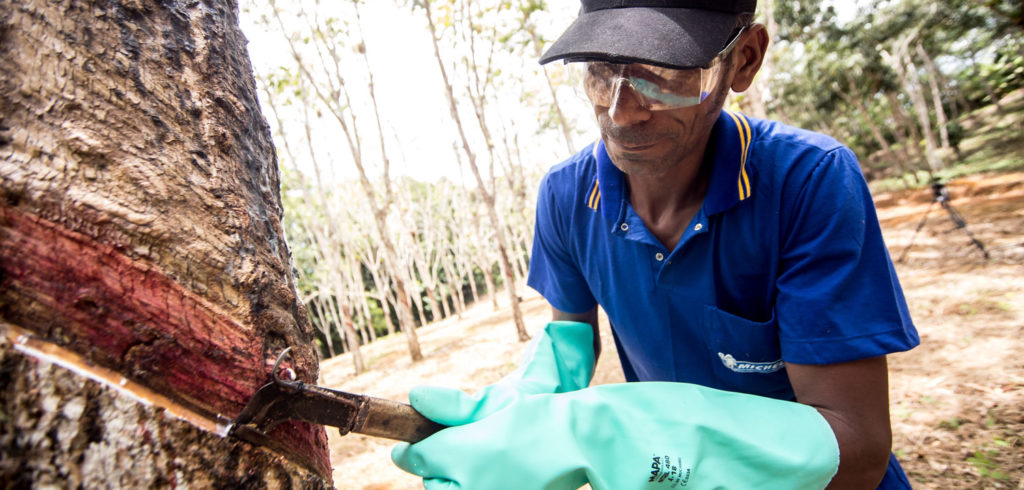Michelin Group and WWF France have extended their collaboration to develop a responsibly sourced natural rubber supply chain and explore sustainable mobility solutions
Encouraged by the progress made during the first phase of the partnership, WWF France and Michelin Group have renewed their partnership for four years. The objective is to further its initiative to support a sustainable natural rubber market and develop a pilot project in Indonesia, as well as opening up the collaboration to include sustainable mobility and the protection of biodiversity.
A zero deforestation partnership
The first phase of collaboration began in 2015 and focused primarily on how sustainable natural rubber can be classified, the development of procurement practices, and the promotion of good practices among the key players on the market and in the international bodies. Reflecting the findings of this partnership, Michelin Group has published its sustainable natural rubber policy and several major players have followed the company’s example in making commitments to zero deforestation.
In this context, WWF France and Michelin Group have set up a pilot project in Indonesia. Installed in zones that have sustained damage, and which have priority status for the WWF on account of their rich biodiversity and the proximity of the Bukit Tigapuluh park, this project aims to preserve and restore the forest, while developing responsible rubber plantations, to benefit both the local communities and the ecosystems.
The field project has made major progress, particularly with the creation of a consultation and inclusion program for the local communities, the construction of villages, the shrinking of illegal deforestation practices in the territory, and the protection of nearly 10,000 additional hectares for the elephant population, despite local social and environmental challenges.
The renewal of the current partnership between Michelin and WWF France will enable the continuation of this project, to strike a balance between local economic development, benefits for the local communities, and preservation of the forests and of biodiversity.
Launch of the International Platform for Sustainable Natural Rubber
This partnership contributed to the establishment, in March 2019, of the International Platform for Sustainable Natural Rubber, of which Michelin Group and the WWF are founder members.
Joined by 39 other members, the platform’s mission is large-scale transformation of the purchasing and production practices for this key raw material, involving all stakeholders in the value chain, from producer to consumer, so as to preserve the forests and ecosystems threatened by unsustainable practices.
The two hope that the renewal of the partnership will make it possible to institute changes at the heart of the rubber market, including in production.
Sustainable mobility and protection of biodiversity
Lastly, this new phase opens up two additional lines of focus: sustainable mobility and protection of biodiversity. WWF France will support Michelin Group in aligning its greenhouse gas emissions reduction goal against that of the Paris Agreement, to stay well below the 2°C (36°F) target. The two will work together alongside international mobility and climate players to communicate joint messages on the mobility of tomorrow. WWF France will also support Michelin Group in developing and then implementing a Biodiversity 2030 strategy for the group.
“Our ambition to develop sustainable mobility is enriched by the contributions from civil society and all stakeholders. Hence, our global partnership with the WWF allows us to make more efficient and rapid progress on essential topics, such as the protection of the tropical forests or of biodiversity. Our assessment of the actions that we have conducted together since 2015 is very encouraging,” said Hélène Paul, purchasing director at Michelin Group.
Jean Bakouma, forests manager at WWF France, commented, “Because it is one of the world’s leading purchasers of natural rubber, Michelin Group serves as a vital lever for driving the transformation of rubber plantations and the rubber market. We are proud of this collaboration, which has already produced tangible results both in the rubber market and on the ground. The renewal of this partnership represents a unique opportunity for bringing good practices into the sector as a whole and in this way preserving the forests and biodiversity.”



